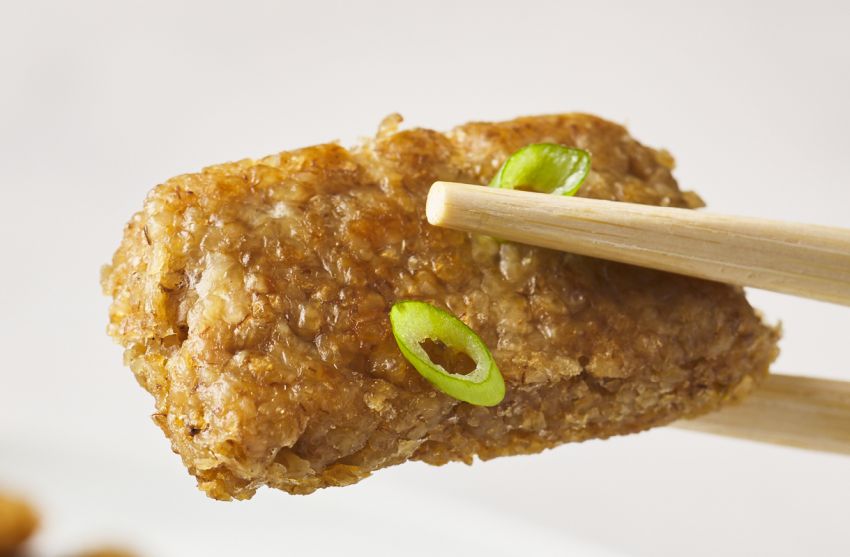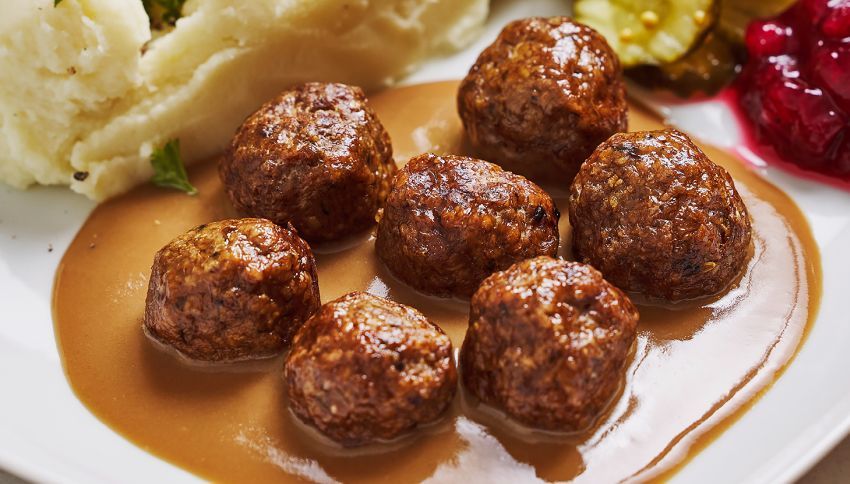Millow—a Swedish startup known for minimally processed meat substitutes from oats and mycelium—has bagged a €2.4 million ($2.6 million) grant from the European Innovation Council (EIC) Accelerator and up to €15 million ($16.3 million) in equity funding from the EIC Fund under its blended finance scheme.
The firm, which has a pilot plant in Gothenburg, will use the grant funds to scale up its production process, which it claims uses a fraction of the water and energy used by brands such as Quorn, with lower capital expenditure.
Chairman Staffan Hillberg told AgFunderNews: “The European Investment Bank has committed up to €15 million ($16.3 million) in equity in one or more financial rounds, contingent on co-investment from private investors.”
He added: “Millow has co-developed multiple SKUs with large food manufacturers, whose names we cannot disclose due to NDAs. These products will initially launch in the Nordic market, with larger volumes expected in 2026. We are also in discussions with companies outside of Europe for a joint establishment once our Nordic factory [a new larger facility in near Gothenburg] is operational.
“In these times when several companies have gone bankrupt or are in financial distress, our strategy all along has been to work closely with our partners so that when our co-developed products are finished, we have orders in line and can grow the company with profitability. We have also filed a number of new patent applications to protect our technology and have implemented a new element of science in fermentation which we believe is a game-changer in mycelium growth.”
‘It’s more like controlled environment agriculture [than food processing].’
Millow’s technology is based on the work of mycelium expert Mohammad Taherzadeh, professor of bioprocess technology at the University of Borås, and is outlined in the company’s first published patent.
While several firms are growing fungal biomass to make meat analogs, Millow is adding mycelium to a plant-based substrate (initially oats) in a novel fermentation process to create hybrid products with a ratio of around 50% fungi and 50% plants.
During the fermentation process, which lasts around 12-16 hours until a certain density is reached, the fungi are added to the oats, eat away at the starch, and start to favorably alter texture and nutrition.
The fungi/oat combo can grow in any shape or form, depending on the shape and dimensions of the containers it grows in, without requiring expensive downstream processing, and has a balanced nutritional profile with protein, fiber, vitamins and minerals.
After the product is ready, it can be shipped fresh or frozen to food manufacturers and sold as a solo packaged product or combined in prepared meals, said Hillberg. “There is a big discussion regarding how many vegan products do not provide minerals and vitamins that can be used by the human body. The food manufacturers that we work with have raised this as a major issue. In order to address this we have drastically reduced the phytic acid content in our products, bringing it close to zero. The result is a major improvement in the uptake of essential nutrients such as iron and zinc.”

It’s not tempeh…
While it sounds like tempeh, which is made via solid-state fermentation, Millow products have a meatier taste, bite, appearance and texture and don’t disintegrate when cooked in a sauce, claimed Hillberg.
“Millow is not tempeh. It’s made very differently, looks different, has a different texture and tastes very different… Millow has a pleasant juicy and bouncy meat-like texture without binders… and it doesn’t melt when used as an ingredient in stews.”
Unlike players growing fungal biomass in liquid suspension, meanwhile, Millow does not require expensive stainless steel fermentation tanks, said CEO Esmaeil Taherzadeh (Prof. Taherzadeh’s son).
“It’s more like controlled environment agriculture [than food processing] in custom equipment we’ve designed that’s made by comanufacturers, so think of highly-automated big chambers. We looked at these players using wet fermentation in big steel vats and asked, can we do this in a better way? And we came up with a totally new process.”
Taherzadeh added: “Our fermentation system is between solid and submerged fermentation. It’s much faster and way more efficient compared to solid state fermentation and uses a lot less energy and water than submerged fermentation.”
Controlled environment fermentation
Millow grows its products in the S-Unit, a proprietary “combination of advanced hardware and software, controlling and manipulating mycelium to grow with certain precision and properties, in what we call controlled environment fermentation,” explained Taherzadeh.
“The S-unit technology is modular which makes it very convenient to scale compared to traditional mycelium production technologies.” The modularity also creates redundancy should one unit encounter issues, he said. “It only uses one-third of the energy normally used by traditional submerged/wet fermentation, and 2.3% of the water, which translates into 95% CO2 savings.
“Further, the necessary investment in equipment is only one-third compared to submerged fermentation. The system setup is also designed for adding automation and handling, which reduces operation costs and improves financials. Additionally, it provides higher safety for mycelium growth resulting in an overall improved food safety, as each unit is equipped with a decontamination system.”
If everything proceeds as planned, he said, “We anticipate having multiple S-units in operation by the end of 2026. Each S-unit will produce 144 tons per year.”





